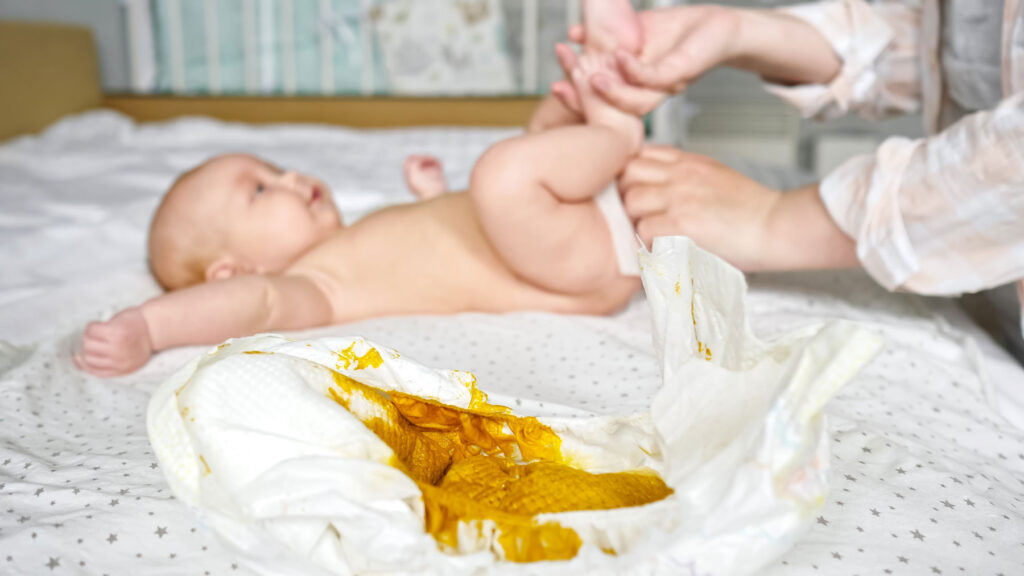

After welcoming your new baby, you might find yourself thinking a lot about something quite unexpected—poop!
It’s a topic that occupies the minds of parents everywhere, and trust us, you’re not alone. We have these conversations with parents every single day. So, let’s dive into the world of baby poop and find out what’s normal and what’s not.
Baby’s First Diet: Breast Milk and Formula
The first thing to know is that poop can look different depending on what kind of milk your baby is having.
If your baby is breastfed, their poop will generally be loose and may vary in color. It’s important to note that the color of breastfed baby poop can change based on what mom eats. So, don’t be surprised if your baby’s poop takes on a greenish hue after you enjoy that big salad or those green beans.
Now, for babies who are being fed formula, their poop tends to be thicker and more paste-like, similar to peanut butter in consistency.
Red Flags: When to Seek Help
While variations in color and consistency are normal, there are some signs that you should never ignore. If your baby’s poop ever appears red or as white as a sheet of paper, it’s essential to let us know. These color changes can sometimes signal an underlying issue, and we’re here to help ensure everything’s okay.
Introducing Solid Foods: The Great Poop Transformation
As your baby starts transitioning to solid foods, you’ll notice some changes in their poop. It will gradually become thicker and more formed. This transformation is entirely normal and part of your baby’s growth and development.
The Blueberry Effect
Parents often ask about foods that can have a surprising impact on poop color. One common example is blueberries. If your baby indulges in some blueberries, you might find their poop turning a striking shade of blue. Don’t worry; it’s just a temporary and harmless change caused by the natural pigments in the berries.
Constipation Concerns
Lastly, let’s talk about constipation. It’s not uncommon for babies to experience occasional constipation as they adjust to new foods and their digestive system matures. Signs of constipation include hard, pellet-like stools or discomfort during bowel movements. If you suspect your baby or child is constipated, please don’t hesitate to reach out. We can provide guidance on how to relieve their discomfort and ensure they’re back on track.
Remember, poop is just one of many aspects of your child’s health and development.
It’s a topic that may take center stage for a while, but rest assured, we’re here to answer your questions and provide support every step of the way.
Feel free to reach out to us anytime you have concerns or questions about your baby’s poop or any other aspect of their health. We’re here to help you navigate this incredible journey of parenthood.

